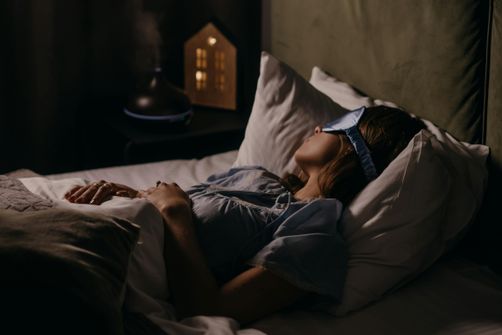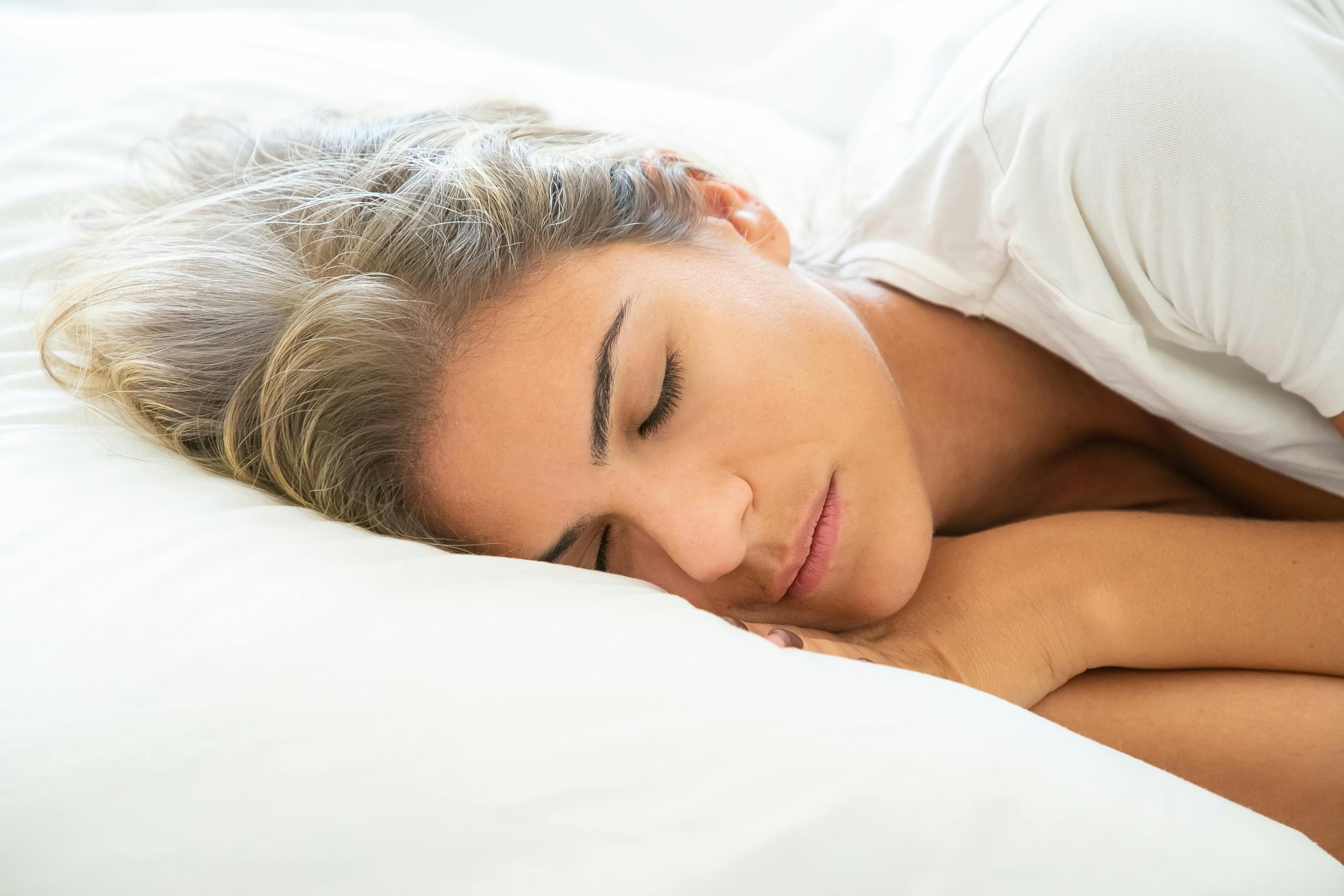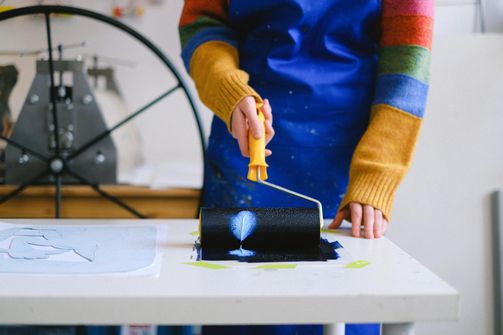
How CBT-I Helps Women Manage Insomnia: Boosting Sleep Quality and Overcoming Sleep Disorders
Sleep is essential for physical and mental well-being, but many women struggle with sleep disorders like insomnia, which can lead to fatigue, irritabi...

Menopause often brings significant changes to a woman’s sleep patterns, affecting not just her rest but also cognitive health. insomnia and brain fog are two of the most common complaints during this time, and they are deeply intertwined. Poor sleep can worsen cognitive issues, and brain fog can make it harder to relax and get restful sleep. Tailoring sleep hygiene practices for women experiencing menopause is crucial for managing both sleep quality and cognitive health.
This guide will explore the effects of menopause on the brain, why sleep becomes a challenge during this stage, and evidence-based strategies to improve sleep hygiene and combat insomnia and brain fog.

Menopause is often accompanied by hormonal changes, especially a decline in estrogen and progesterone, which can disrupt the sleep-wake cycle. These hormones influence various aspects of sleep, such as:
But it’s not just the hormonal shifts causing sleepless nights. Other factors such as mood swings, anxiety, and depression, which can accompany menopause, also contribute to poor sleep.
A study in the Sleep Medicine Clinics reported that up to 60% of menopausal women experience sleep disturbances, often exacerbated by night sweats and hot flashes. Poor sleep has been linked to brain fog, which includes difficulty concentrating, forgetfulness, and mental fatigue—symptoms frequently experienced during menopause.
The lack of quality sleep during menopause doesn’t just leave women feeling tired—it directly impacts brain function. Research has shown that chronic insomnia can lead to a decline in cognitive function, making it harder to concentrate or remember things. This is what many women refer to as brain fog, a feeling of mental cloudiness or sluggishness.
According to a study published in Current Neuropharmacology, insufficient sleep can cause changes in brain structure, particularly in areas responsible for memory and learning. For women going through menopause, the combination of hormonal shifts and sleep disturbances worsens these cognitive challenges.

Improving sleep hygiene is a powerful way to combat insomnia and cognitive decline during menopause. Let’s break down the best evidence-based practices that can help you sleep better and think clearer:
Since hot flashes and night sweats are common disruptors during menopause, keeping the bedroom cool is essential. Set the room temperature between 60-67°F, which is optimal for sleep, and use breathable fabrics for bedding. Consider using fans or a cooling mattress to prevent overheating.
Sticking to a regular bedtime and wake time helps regulate the body’s internal clock, making it easier to fall asleep and wake up refreshed. Menopausal women can benefit from this consistency, as it helps combat the sleep-wake disruptions caused by hormonal shifts.
Stress and anxiety can heighten during menopause, making it harder to relax before bed. Incorporating relaxation techniques like deep breathing, progressive muscle relaxation, or mindfulness meditation can help calm the mind.
Exposure to blue light from screens (phones, tablets, and TVs) can interfere with the production of melatonin, the hormone that regulates sleep. During menopause, when sleep is already fragile, avoiding screens before bed is especially important.
CBT-I is a highly effective, evidence-based treatment for chronic insomnia, helping many menopausal women restore their sleep. It focuses on changing negative thought patterns around sleep and introducing healthy sleep behaviors.
Certain foods and drinks can worsen menopausal symptoms and disrupt sleep. Avoid caffeine and alcohol, especially in the afternoon and evening, as they can contribute to both insomnia and hot flashes.
For women going through menopause, certain supplements may help improve sleep quality:
However, always consult with your doctor before starting any new supplements.
Improving sleep quality doesn’t just help you feel more rested—it also supports better brain function. Quality sleep allows for memory consolidation, improved concentration, and better emotional regulation, all of which can reduce the severity of brain fog.
A study published in the Journal of Clinical Medicine found that improving sleep hygiene helped mitigate cognitive decline and memory problems in postmenopausal women. The research underscores how critical sleep is for maintaining mental clarity and sharpness during this life stage.
Q: Why do women experience more sleep issues during menopause?
A: During menopause, the body undergoes hormonal changes, particularly a decline in estrogen and progesterone. These hormones help regulate sleep and mood, and their reduction can lead to symptoms like hot flashes, night sweats, and increased anxiety, all of which disrupt sleep.
Q: What is brain fog, and how is it connected to poor sleep during menopause?
A: Brain fog refers to a lack of mental clarity, difficulty concentrating, and memory lapses. It is a common symptom during menopause, often linked to poor sleep. Studies show that insufficient sleep impacts cognitive function, leading to mental fatigue and decreased focus, exacerbating brain fog.
Q: What sleep hygiene practices can help improve sleep quality during menopause?
A: Tailored practices like maintaining a cool sleep environment, sticking to a consistent sleep schedule, reducing blue light exposure before bed, and using relaxation techniques like meditation can significantly improve sleep. Techniques like Cognitive Behavioral Therapy for Insomnia (CBT-I) are also highly effective for managing menopausal sleep disruptions.
Q: How can I manage hot flashes at night to improve sleep?
A: Keep your bedroom cool by using fans or cooling pillows, wear breathable, moisture-wicking fabrics, and drink cold water if you wake up from a hot flash. Managing stress through relaxation techniques can also help reduce the frequency of night sweats.
Q: Are there any supplements that can help with sleep during menopause?
A: Some supplements like melatonin and magnesium may support better sleep by regulating the sleep-wake cycle and reducing anxiety. However, always consult a healthcare provider before starting any new supplements.
This article is for informational purposes only and does not substitute for professional medical advice, diagnosis, or treatment. Always consult with your healthcare provider before starting any new treatment, therapy, or supplement, especially if you are experiencing chronic sleep issues or severe menopausal symptoms. The strategies discussed may vary in effectiveness based on individual health conditions, and results may differ from person to person.
Menopause brings unique challenges to sleep, but with the right sleep hygiene practices, you can combat insomnia, brain fog, and stress. By creating a cool and comfortable sleep environment, practicing mindfulness, sticking to a sleep schedule, and limiting blue light exposure, women can reclaim their rest and support cognitive health during menopause.
Remember, improving sleep is a gradual process, but even small changes can make a big difference in how you feel—both physically and mentally. Sweet dreams and clearer days are possible with the right strategies in place!

Sleep is essential for physical and mental well-being, but many women struggle with sleep disorders like insomnia, which can lead to fatigue, irritabi...

Friendship isn't just about shared laughs, deep conversations, and happy memories—it's also about longevity. Female friendships play a crucial role in...

Liminal spaces, or transitional periods in life, represent moments of transformation where women are “in between”—neither in the old nor the new, but ...

Laughter is a powerful tool for improving both mental and physical health, especially for women. The act of laughing releases a cascade of positive ph...

Creative Expression, whether through art, music, writing, or other pursuits, is not just a source of joy and self-expression—it has profound impacts o...